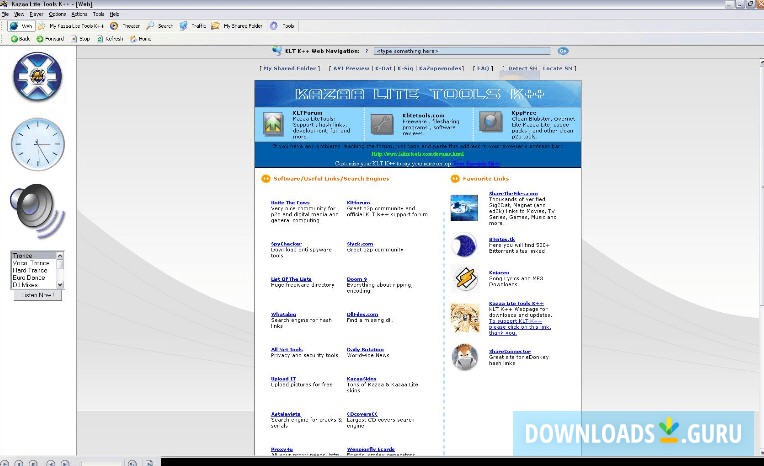

Zennstrom, 37, said he doesn't download music he buys compact discs. "Basically, what the should do is outlaw the Internet," he said. He barely recouped the money, some $220,000, he put up to finance the company - and he still rides a bicycle to work. He sold the Kazaa software and Web site in 2002 as his company's legal bills exceeded $100,000 a month.ĭespite Kazaa's popularity, Zennstrom never struck it rich. The industry sued him last year, brandishing threats of criminal prosecution and millions of dollars in fines. It would seem that Zennstrom would be wary of taking on Big Music. Microsoft Corp., based in Redmond, Wash., wouldn't comment on whether it is considering using Kazaa technology for its MSN service. based in Dulles, Va., said the company has looked at the PeerCache technology and decided not to deploy it. However, a spokesman for America Online Inc., a unit of AOL Time Warner Inc. He said he has not yet approached any U.S. He will not, however, name the other two or say how much the ISPs paid for the service. Zennstrom counters that he has three paying Internet-provider customers, including Wanadoo Netherlands, a unit of France Telecom S.A. "And it increases the speed for the users, which means they will just do it more." "PeerCache is going to reduce the cost of file sharing to Internet service providers, which means the ISPs will have less incentive to cut down on the file sharing," said Ben Edelman, a fellow at Harvard Law School's Berkman Center for Internet and Society. recording industry sued 261 individuals that it claims illegally share large numbers of music files online, an attempt to strongly deter the dissemination of copyrighted materials via file-sharing services.

Two weeks ago, Vivendi Universal S.A.'s Universal Music Group slashed wholesale compact-disc prices some 30 percent to try to lure buyers back.Īnd last week, the U.S. estimates that file-sharing cost music companies $7 billion in sales over the past two years. Legal experts say Zennstrom's new product poses a fresh threat for the music industry, which already blames Kazaa and similar programs for its sharp drop in sales in recent years. The International Federation of the Phonographic Industry, a trade group, is investigating whether to sue Joltid Ltd., maker of PeerCache, or ISPs that use it. Niklas Zennstrom, who co-founded Kazaa B.V., the company that created the program of choice for sharing songs and videos online, now is offering Internet service providers PeerCache - software that lets the ISP's users download commonly shared files from the ISP itself, rather than over the Internet from another user's hard drive. The Swede behind the world's most popular song-swapping software is at it again.


 0 kommentar(er)
0 kommentar(er)
